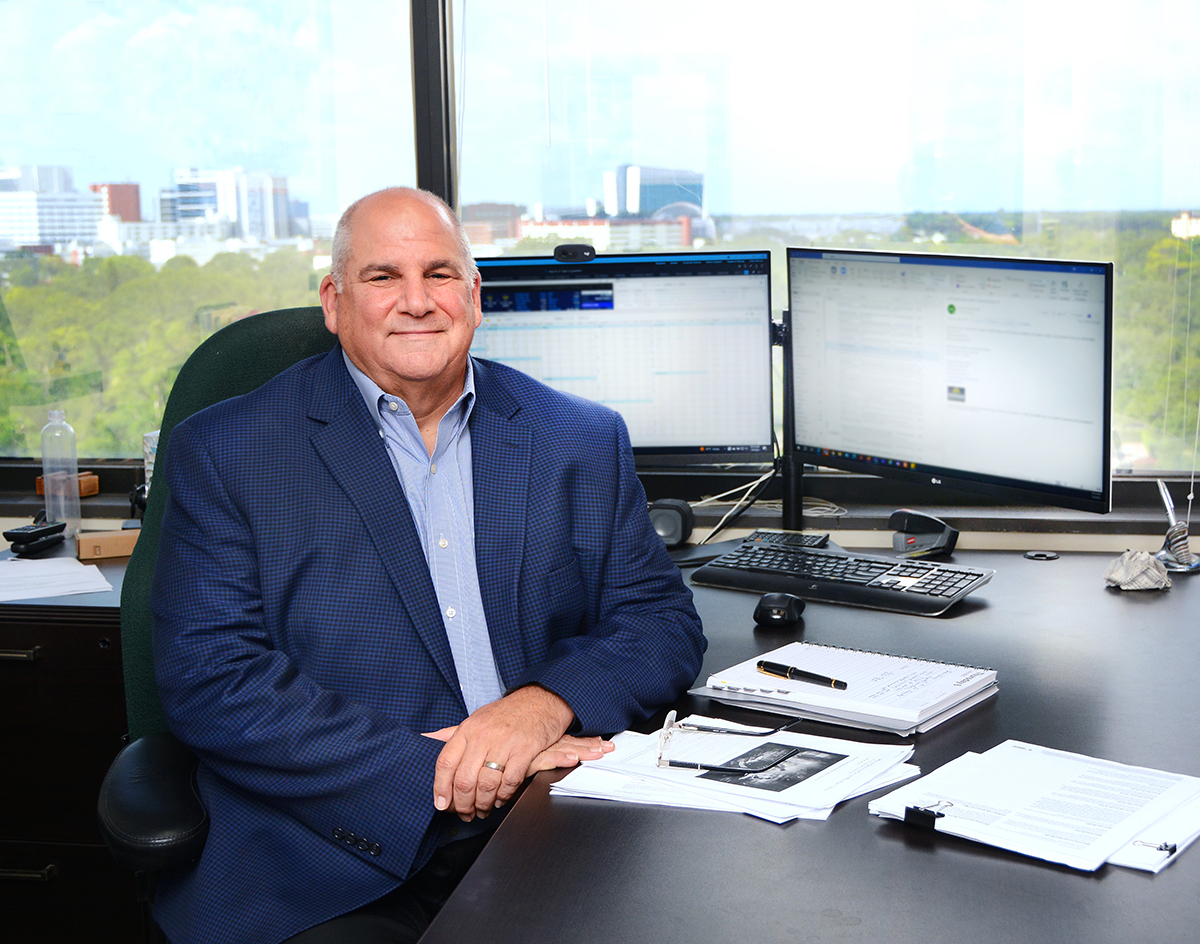Financial anxiety is a common denominator for many U.S. citizens. Rising costs and the changing state of the economy have impacted long-term savings and monthly expenses for many residents. And concerns are compounded for families that need to budget for higher education.
A recent Creditkarma survey found that approximately 19% of respondents, age 59 and over, don’t have a retirement account. And according to Education Data Initiative, the average college tuition has retained an annual growth rate of 2% over the past 10 years with the average in-state college student currently spending $26,027 for one academic year.
Daily needs will always overshadow future expenses in the household budget; however, the need to save cannot be ignored, and even a little advice can be a big help.
Ben Weiner is a founder and principal of Winter Park Wealth Group. He earned a bachelor’s degree in accounting from the University of Florida in 1984 and became a financial advisor for Shearson Lehman (later renamed Morgan Stanley) in 1986. His specialties include financial planning, estate planning, portfolio management and college planning.
In this edition of Healthy Discourse, Weiner offers general tips and insights on ways to save for retirement and for your child’s education.
The sooner, the better
The best advice I can give is: the earliest that you can start saving, whether it’s for retirement or for your child’s college education, the greater probability you’ll have of reaching your goal.
The best time to start saving for retirement is at your first job; start investing in their 401(k) right away. Having money that comes out of your paycheck before it’s taxed, and before you ever see it, means that you don’t spend it. And there are no taxes on the company match or the earnings until you withdraw the funds after retirement.
It’s true that people switch jobs more often now than they did in the past, but your 401(k) money is still your money even if you don’t stay that long; it’s the corporate match that you’ll be giving up. And a 401(k) from your previous job can be rolled into one that you start at a new job.
Younger people in the workforce can also start with a Roth IRA – an individual retirement account where you add up to $6,000 of your post-tax earnings. Even though you don’t get the tax deduction like you would with a 401(k), as long as you own your account for five years and you are age 59-and-a-half or older, you can withdraw your money and the investment earnings when you want to, and you won’t owe federal taxes.
If you are starting later in life, don’t wait any longer, just do it.
Every little bit helps
You can take a certain amount every month and place it into an investment account. If you’re looking at a 10-20-year time horizon, markets will have ups and downs, but if you put money away on a regular basis, you’ll smooth out those ups and downs because you are always adding money to the account. You can monitor the changes, but don’t look at it on a daily basis. And as you get closer to retirement, you might want to be more conservative with your investments to lower your risks.
Several investment companies achieve the same thing with mutual funds that are based on when you think you will retire. For example: if you want to retire 37 years from now, you can look at a fund that starts off more aggressively. As time goes on, the investments get more conservative, shifting to bonds and fixed income to minimize loss.
Prepaid plans
As for saving for a child’s education, it’s the same principal; the sooner the better. The best time to start is when your child is born.
To be able to have at least 50% of a child’s education paid for by the time he or she is ready for college, invest maybe $250 per month, every month.
The state of Florida has a prepaid plan program that allows you to decide if you want it all to go toward tuition or include room and board for two-to-four years. Qualified expenses include tuition and fees, books and supplies, computers, and room and board that includes off-campus housing.
And it doesn’t just have to go toward a state college or university. There are vocational schools and other facilities that are considered qualified institutions where the money can be used; you just have to check the most up-to-date information. The money can even pay for semesters abroad – not for travel expenses, but for tuition – as long as it’s for a qualifying institution.
The prepaid plans are tax free, and the money can be shifted between family members. If you prepay for one sibling and he or she gets a full scholarship, the money can go to the other sibling. Or it can also stay where it is and provide for the next generation. It can go to a sibling or cousin, or even to a parent looking to go back to school, or to a grandchild.
If the child is awarded a scholarship, money can be withdrawn as taxable income. It can also be used for graduate school. And it can also stay where it is and provide for the next generation.
If not used for education, the money can be withdrawn and you would pay tax on the gain, plus a 10% penalty.
Grants and loans
Your student can also get money for doing well in high school with the Florida Bright Futures Scholarship Program; it’s based on SAT scores, volunteer hours, and GPA. There are also grants and community scholarships that are available, and, obviously, student loans. But where student loans are considered, the rule of thumb is that the total amount that needs to be paid back should be less than the starting salary of the chosen occupation. It’s still possible to work your way through school but you need to be very careful about what and how you are spending.
The thing is, it’s always a lot more fun to go on a trip than it is to save for anything. But if you can budget a monthly investment plan, it will not only save money, but it will also save a great deal of stress.
Speak with a financial advisor to make a plan that best fits your situation. If you follow that plan over a year’s time, it will become a habit and you’re going continue to do it.
the32789 does not offer, nor make recommendations for financial planning. The information published here is for informational purposes. For more information, contact a qualified personal financial advisor who may best assist in planning based upon your needs and individual situation.
The Healthy Discourse series focuses on physical, mental, financial, and professional health. Winter Park-based experts offer advice and insight through a brief conversation inspired by one question. If there is a topic you would like to suggest for Healthy Discourse, please email news@the32789.com.




